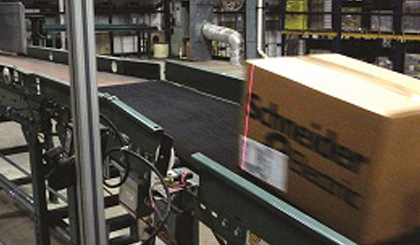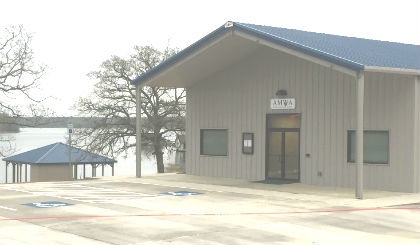
The Board began a years long study to find the most cost-effective way to increase the water supply and potentially reduce the burden on Lake Athens. The Board studied five potential ways of completing this task:
Damming a waterway to create Lake Athens II, with multiple sites studied
Purchasing Forest Grove Reservoir to create Lake Athens II
Piping in water from Lake Palestine
Water reclamation and reuse
Groundwater wells
Purchasing land and creating Lake Athens II and the purchase of Forest Grove Reservoir were quickly discarded as potential water resources. Between the purchase of the land and the building of a pipe network back to the existing water treatment plant, the cost was out of reach. Additionally, securing a Lake Athens II would not help the water supply in the case of drought
Conversations began with the Upper Neches River Authority regarding piping water from Lake Palestine, while AMWA engineers designed the piping and pump systems that would be needed to move that water to Athens. After these designs were completed, once again, the high cost of the miles of pipe would not justify the amount of water that would be gained.
Next was studying the feasibility of building a pipe system from the wastewater treatment plants to a reclamation plant, that also would need to be constructed. This portion of the study also looked at the operational costs of treating reclaimed water. Between construction, and the costs of additional filters and chemicals, the amount of water that would be gained was not consider worth the high cost to taxpayers.
The Board of Directors had one more type of water resource to research, groundwater wells. With Athens being on the Corrizo-Wilcox aquifer, there was the potential that a groundwater well could produce high quantities of water. A hydrogeologist was hired to assist in identifying the best prospective locations for these wells.
Test holes were bored a three potential well sites: the water treatment plant, below the Lake Athens dam, and on AMWA property known as Frank’s Tract. Once these holes were bored, the hydrogeologist looked at the water table, sand thickness, and other data to determine which location had the potential of producing the most groundwater, would be able to recharge that portion of the aquifer, and which location would have minimal drawdown (groundwater loss over time).
During the initial groundwater study, it was estimated that a well located on Frank’s tract would be able to produce up to 1,200 gallons of ground water per minutes or more than one million gallons a day.
The test site at the water treatment plant also had similar results for water production. On top of high production rates, a groundwater well at the water treatment plant could be tied into the existing storage and pump systems at the treatment plant. This saved tax dollars and allowed a well to fire up and pump water into town much faster and efficiently. Groundwater wells are also not affected by evaporation and be used during the summer months when Lake Athens is historically lower.
Work began on Water Treatment Plant Well #1 in 2012 on both the production well and additional test wells on Frank’s Tract and the newly purchased Powder River Ranch. Water Treatment Plant Well #1 began pumping in early 2014. The City of Athens pumped 119 million gallons from this well in 2019 and 191 million gallons through October of this year.
All of this brings us to 2020 and the next major project on AMWA’s agenda: the development of Powder River Ranch.
AMWA currently has $2.7 million dollars budgeted to complete phase one of Powder River Ranch. The first phase includes a million gallon a day well, concrete storage tank, chlorinator, and pump station. The funds that are being used to develop this water resource come from tax dollars that AMWA has saved since paying off the last bond in 2000. AMWA will expend cash for this major municipal project.
Powder River is necessary for multiple reasons:
To plan for growth in the City of Athens
To complement our current water supply
To provide a completely redundant water source, not tied into the current sources or treatment system
AMWA and their engineers have designed Powder River to not only provide an additional water resource, but to also add redundancy in case of either a power failure or a catastrophic loss at Lake Athens or the water treatment plant.
In spring 2019, major storms swept through parts of East Texas. The City of Palestine was without water for a few days after damage to the power lines at their water treatment plant. It took those few days for a compatible generator to be located and connected at the Palestine water treatment plant.
It was just one month later when the AMWA Board decided to move forward with the first phase of Powder River Ranch. To be included in this phase will be an auxiliary power supply, so that the citizens of Athens can still have water, in case of a power outage or other failure at the water treatment plant.
The engineering and designs for Powder River phase one are 97% complete and AMWA is expecting to break ground on the project during the first quarter of 2021.
AMWA is excited to move forward with the plans that started with a water resource study way back in 1999. AMWA is dedicated to not only providing the citizens of Athens with raw water today, but also ensuring that the citizens have plenty of water tomorrow as well.
As the 20th century wound down and AMWA was nearing completion of repaying the 1984 bond for the expansion of the Water Treatment Plant, the AMWA Board of Directors turned their attention to the next stage: developing water resources for the future and growth of Athens and safeguarding the water supply against drought.
The Board began a years long study to find the most cost-effective way to increase the water supply and potentially reduce the burden on Lake Athens. The Board studied five potential ways of completing this task:
Damming a waterway to create Lake Athens II, with multiple sites studied
Purchasing Forest Grove Reservoir to create Lake Athens II
Piping in water from Lake Palestine
Water reclamation and reuse
Groundwater wells
Purchasing land and creating Lake Athens II and the purchase of Forest Grove Reservoir were quickly discarded as potential water resources. Between the purchase of the land and the building of a pipe network back to the existing water treatment plant, the cost was out of reach. Additionally, securing a Lake Athens II would not help the water supply in the case of drought
Conversations began with the Upper Neches River Authority regarding piping water from Lake Palestine, while AMWA engineers designed the piping and pump systems that would be needed to move that water to Athens. After these designs were completed, once again, the high cost of the miles of pipe would not justify the amount of water that would be gained.
Next was studying the feasibility of building a pipe system from the wastewater treatment plants to a reclamation plant, that also would need to be constructed. This portion of the study also looked at the operational costs of treating reclaimed water. Between construction, and the costs of additional filters and chemicals, the amount of water that would be gained was not consider worth the high cost to taxpayers.
The Board of Directors had one more type of water resource to research, groundwater wells. With Athens being on the Corrizo-Wilcox aquifer, there was the potential that a groundwater well could produce high quantities of water. A hydrogeologist was hired to assist in identifying the best prospective locations for these wells.
Test holes were bored a three potential well sites: the water treatment plant, below the Lake Athens dam, and on AMWA property known as Frank’s Tract. Once these holes were bored, the hydrogeologist looked at the water table, sand thickness, and other data to determine which location had the potential of producing the most groundwater, would be able to recharge that portion of the aquifer, and which location would have minimal drawdown (groundwater loss over time).
During the initial groundwater study, it was estimated that a well located on Frank’s tract would be able to produce up to 1,200 gallons of ground water per minutes or more than one million gallons a day.
The test site at the water treatment plant also had similar results for water production. On top of high production rates, a groundwater well at the water treatment plant could be tied into the existing storage and pump systems at the treatment plant. This saved tax dollars and allowed a well to fire up and pump water into town much faster and efficiently. Groundwater wells are also not affected by evaporation and be used during the summer months when Lake Athens is historically lower.
Work began on Water Treatment Plant Well #1 in 2012 on both the production well and additional test wells on Frank’s Tract and the newly purchased Powder River Ranch. Water Treatment Plant Well #1 began pumping in early 2014. The City of Athens pumped 119 million gallons from this well in 2019 and 191 million gallons through October of this year.
All of this brings us to 2020 and the next major project on AMWA’s agenda: the development of Powder River Ranch.
AMWA currently has $2.7 million dollars budgeted to complete phase one of Powder River Ranch. The first phase includes a million gallon a day well, concrete storage tank, chlorinator, and pump station. The funds that are being used to develop this water resource come from tax dollars that AMWA has saved since paying off the last bond in 2000. AMWA will expend cash for this major municipal project.
Powder River is necessary for multiple reasons:
To plan for growth in the City of Athens
To complement our current water supply
To provide a completely redundant water source, not tied into the current sources or treatment system
AMWA and their engineers have designed Powder River to not only provide an additional water resource, but to also add redundancy in case of either a power failure or a catastrophic loss at Lake Athens or the water treatment plant.
In spring 2019, major storms swept through parts of East Texas. The City of Palestine was without water for a few days after damage to the power lines at their water treatment plant. It took those few days for a compatible generator to be located and connected at the Palestine water treatment plant.
It was just one month later when the AMWA Board decided to move forward with the first phase of Powder River Ranch. To be included in this phase will be an auxiliary power supply, so that the citizens of Athens can still have water, in case of a power outage or other failure at the water treatment plant.
The engineering and designs for Powder River phase one are 97% complete and AMWA is expecting to break ground on the project during the first quarter of 2021.
AMWA is excited to move forward with the plans that started with a water resource study way back in 1999. AMWA is dedicated to not only providing the citizens of Athens with raw water today, but also ensuring that the citizens have plenty of water tomorrow as well.




